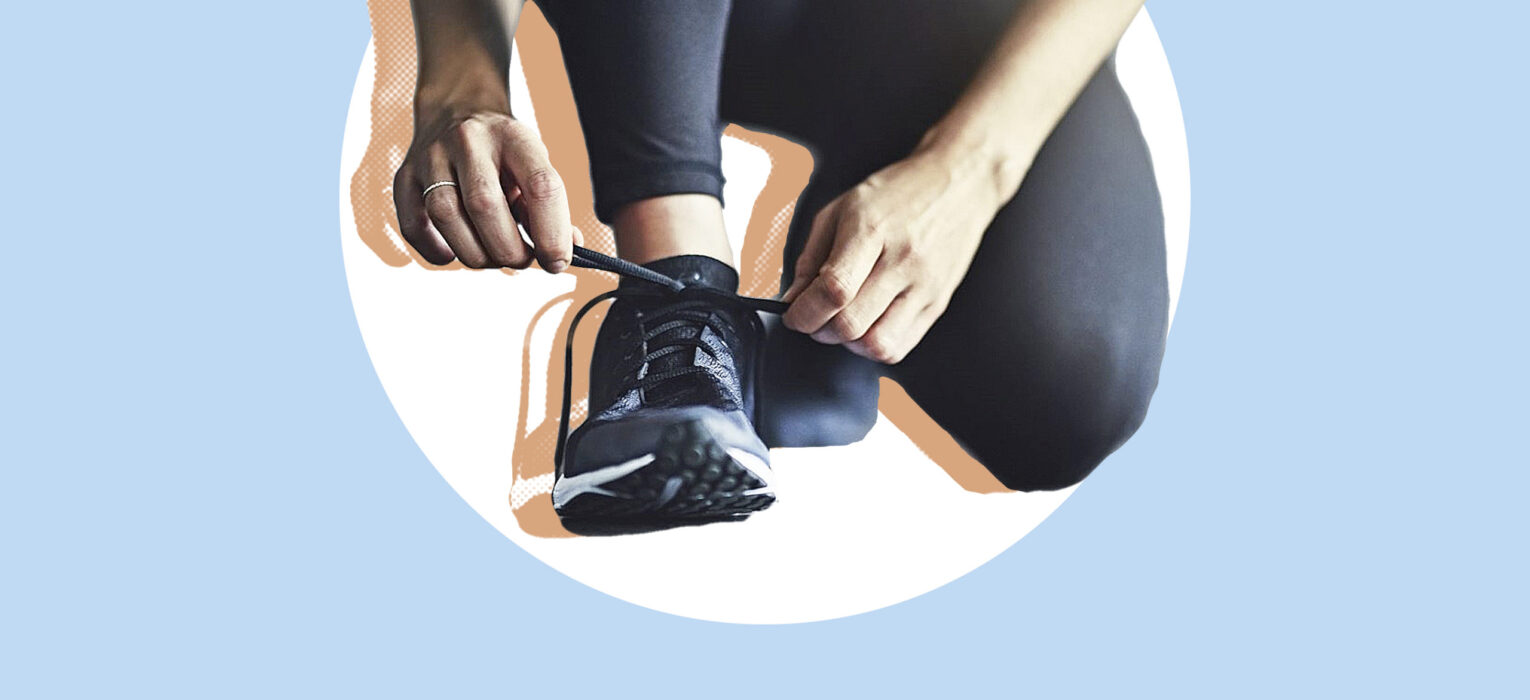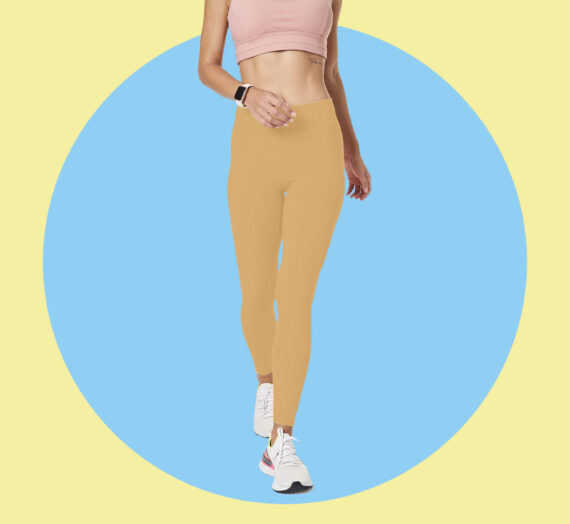Exercise newbie? Congratulations! Making the decision to devote time and effort to be more fit is not an easy one. However, the results are well worth it. Before starting your life-long fitness journey though, there are a few things you should know. Read on to find out what exercise beginners should know before starting.
This is part 2 of my exercise for beginners series, so if you’re interested on how to start right, read all the posts in the series! This is based on my own research and experience as an exercise newbie myself, so we’re all in this together!
Table of Contents
What qualifies as exercise?
First off, newbies need to know what exercise is. According to Medical News Today, exercise involves engaging in physical activity and increasing the heart rate beyond resting levels. With this definition, a lot of the things we do can qualify as exercise such as walking, cleaning, playing sports, etc.
The article also classifies exercise into 4 different types:
- aerobic – improves how the body uses oxygen like running or cycling
- anaerobic -exercise to builds strength and muscle mass such as weightlifting and interval training
- agility training – sports like tennis and basketball that require you to maintain control while varying speed and direction
- stretching and flexibility – combines stretching, muscle conditioning, and balance training like yoga and pilates
The right type of exercise for beginners
Exercise beginners need to know what type of exercise they should do. Unfortunately, there’s no exercise that will fit everyone. The right type will depend on factors unique to you. To know which type of workout is best, you must first determine your goals. Is it to lose or gain weight? Build muscle or simply tone your current shape? Once you figure that out, you can determine what type of workouts you can focus on. Whatever your goals are, make sure to include these 5 basic fitness goals!
Take note that I only said “focus on”, and not “do exclusively”. That’s because you still want to diversify your workouts and add a little of each type to make sure your whole body is getting the benefits and that you keep seeing results. Aside from that, it helps to avoid boredom and injury.
Here’s an example of how I do my workouts, using my free weekly fitness calendar. My goal is to tone up my body and maintain my weight. I would highly recommend for you to create your own exercise routine because there are so many benefits—from avoiding injury to getting motivated to exercise more!


Exercise beginners should know: nutrition is important
No matter how hard or long you work out, if you don’t complement it with proper nutrition, then you won’t get the optimum results. If you don’t have any special dietary needs, ensure that you eat enough veggies and fruits and stay away from heavily processed food. Also, make sure to read the nutrition facts. Labels can say “healthy” and “less sugar” but check the facts to be sure. As a general guide, you can follow this dietitian’s “Rule of 5”, which says that 5g of sugar per serving is generally okay. Of course, you don’t want to go over the recommended amount of sugar in a day.
Think twice about each snack you choose as well. That 4-pack of oreos takes 23-minutes of running on the treadmill to burn! Check out this list of popular snacks and what it would take to burn their corresponding calories off. List it down or print it on your wall so you never eat (okay that might be asking too much) those damn good snacks again.


Also, I know health shakes and smoothies are all the rage now, but I would suggest only doing so in moderation. Always drinking and not eating your fruits and veggies might not be good for your stomach in the long run. Store-bought blends might be chock-full of sugar, so it would be best to do it yourself so you can control how much you actually put in.
Exercise beginners should know: duration
One thing newbies should know is how long they should exercise. The best way to determine this is to consult your physician especially if you have preexisting conditions. If you’re the average healthy adult, here’s a guideline you can refer to that recommends 150 minutes of moderate aerobic activity or 75 minutes of vigorous aerobic activity a week. If you divide that by 6 days (considering 1 rest day per week), that would be 13 – 25 minutes of moderate to vigorous exercise, daily. Of course, this can change depending on many factors such as your goal, age, fitness level, and schedule.
One of the ways you can determine this for yourself is to try doing the average number of minutes, or even shorter, when you start. Do what is comfortable for you. Then, start doing longer or more intense workouts as you build your strength and endurance.
How frequently you should exercise
Something that exercise beginners should know is how frequently to exercise. Some people do it daily, others do it 5-6 times a week. If you’re just starting out, I would recommend doing it 3-4 times a week then adjusting it based on your schedule and fitness level.
Also remember to include a rest day or two to give your body enough time to recover. You can choose to have an active recovery day, like adding a gentle yoga flow. That way, you’re still moving, but not wearing yourself out.


Spot reduction is a myth
You might have been compelled to workout because you want to lose your belly or get better toned arms. I hate to break this to you, but a hundred crunches won’t magically melt the fat off your belly. Believe me, as I’ve done so many ab workouts for around 9 months now. There’s no such thing as spot reduction.
“You can try to cook a turkey with a candle, or you could use the oven.” That’s how this article puts it. Fat loss happens when you burn enough calories (one pound of fat is 3500 calories), and most exercises that focus on one small group of muscles don’t burn much. Just because you “feel the burn” when you do those crunches doesn’t mean that you’re burning the fat in that area. That burn is actually caused by a chemical reaction, and has nothing to do with losing those love handles.
This is why it is important to improve your overall fitness. While there’s no harm in trying to focus on a few parts of your body, you have to ensure that majority of your workouts make your whole body (and larger muscles) work. That way, you not only get rid of the excess fat covering your toned muscles, but improve your overall health as well.
What exercise beginners should know: proper form is key
As a newbie, you might think it’s all about speed and getting more reps in for a set period. But that’s not always the case. In fact, slower is better in some workouts. What you should prioritize is proper form.
For each exercise, make sure your body is following the proper posture. Do it in front of a mirror or ask someone to check you as you do it. This is extremely important to avoid injury and ensure you’re getting the full benefit of the workout.
Once you master the form, then you can start building up on speed, if that is helpful for a certain exercise. Just always remind yourself to check your posture throughout your workout, since our bodies will tend to slack off as it gets more tired.


Breathe!
When doing workouts that are extra hard, you will be tempted to hold your breath. Fight that and make sure you keep your lungs open. Our body needs oxygen, and ensuring that we get it can help us exercise better.
As to the proper breathing patterns, it will depend on the type of exercise. A good rule of thumb would be to exhale on exertion. This means that you should exhale during the part of the workout where you exert the most effort. For example, exhale when you get up from a squat and inhale going down.
Energy levels won’t always be consistent
While you may be really excited to start now (and that’s really good!), don’t expect your energy levels to always stay high. Even when your fitness levels start improving, there will be days when you do the same workout but feel more tired than you were when you first did it. There are many factors affecting this like what you ate, the exercises you’ve been doing for the past few days, etc. Just know that it doesn’t mean you suddenly lost all that hard work.
It also works the opposite way, and there will be days when you will feel stronger. Take advantage of those days and try to do more intense or longer workouts. Whatever your energy level on that day, respect it and don’t be too hard on yourself. If you’re just feeling lazy though, don’t give in! Here are ways to overcome excuses not to exercise.
What exercise beginners should know
Now, you know the basics. The next step is to apply them! Congratulations again on starting your fitness journey. This is only the beginning of a lifelong commitment. Best of luck and I’m sure you’ll love the results, as long as you keep at it! Read the next parts of my Exercise for Beginners series for more tips for exercise newbies!
Interested in more? Read my top 10 tips on how to start exercising…and actually stick to it!







Jeannie
very informative! thank you for sharing
Kathleen
Thank you, Jeannie! Glad you liked it. 🙂
Talissa
I’ve tried so many times to work out and lose some weight but I could never stau motivated because calling myself a chocoholic is an understatement ? but I’ve started up again and these are some great tips!
Kathleen
Hi, Talissa! I’m glad you started again! 🙂 It’s really not easy. It’s a lifelong journey of fitness after all. But yeah, I think the best advice I can give as a newbie myself is to start slow. 🙂 Don’t force yourself to do really hard workouts or really long ones from the start. Because the problem with that is you end up dreading having to exercise. Be really gentle to yourself at the start. Then build up (slow and steady!). 😀 Hope you keep at it and achieve your goals!
jentowkaniuk
I owned a gym for 10 years and love the tips in this post. They are simple, proven and immune to fads. Doing the basics – eating right, concentrating on proper form and staying consistent will always get results.
Kathleen
Yaaay! Glad to know I was able to get it right! 😀 Some people, especially beginners like me don’t always know this from the onset and it can really change how we workout. 🙂
heatherwriterslifeforyoucom
Great post! I’m essentially a newbie to exercise since it’s been so long! This post really gave me some helpful information that I can apply next time I work out.
Kathleen
Thank you so much! I’m glad I was able to help out. 🙂
GF Veg
This is a great post on exercise tips for beginners. When I first started exercising years ago, it felt pretty overwhelming because it seemed like I was so far away from any of my goals. It took a lot of patience, and I’ve learned a lot in the process. I’m still learning all the time, but I no longer feel like a beginner, and exercise is a daily routine now! My body craves it, and I love it. 🙂
Kathleen
Woow! That’s definitely the goal—to love and crave it! <3 It goes to show that if you do it regularly it will become easier and more natural to you. 🙂
Kelsey
Great suggestions! I just started working out so these are great ideas! I’ll definitely keep it handy!
Kathleen
Thanks, Kelsey! Yaay! Congratulations on starting your fitness journey. Hope these help you out. 🙂
Summer Ludwig
This is a great post full of really thoughtful suggestions for someone new to exercise! I have been established in my routine for a long time but I still struggle with fitting in aerobic activities because I just don’t like it lol.
Kathleen
Thank you, Summer! Wow, that’s amazing! It’s really inspiring to know people who have been exercising for a long time because I’ve had some people tell me it’s simply a phase I will grow out of. Hahaha! I’m so sorry to hear that! There are times I dread it too but I just turn on a video and do it. Music helps for some! 🙂
Benefits of Having An Exercise Routine - Kathleen Wonders
[…] Related:Best Youtube Workout Videos For Every MoodExercise For A Balanced LifeWhat Exercise Beginners Should Know […]